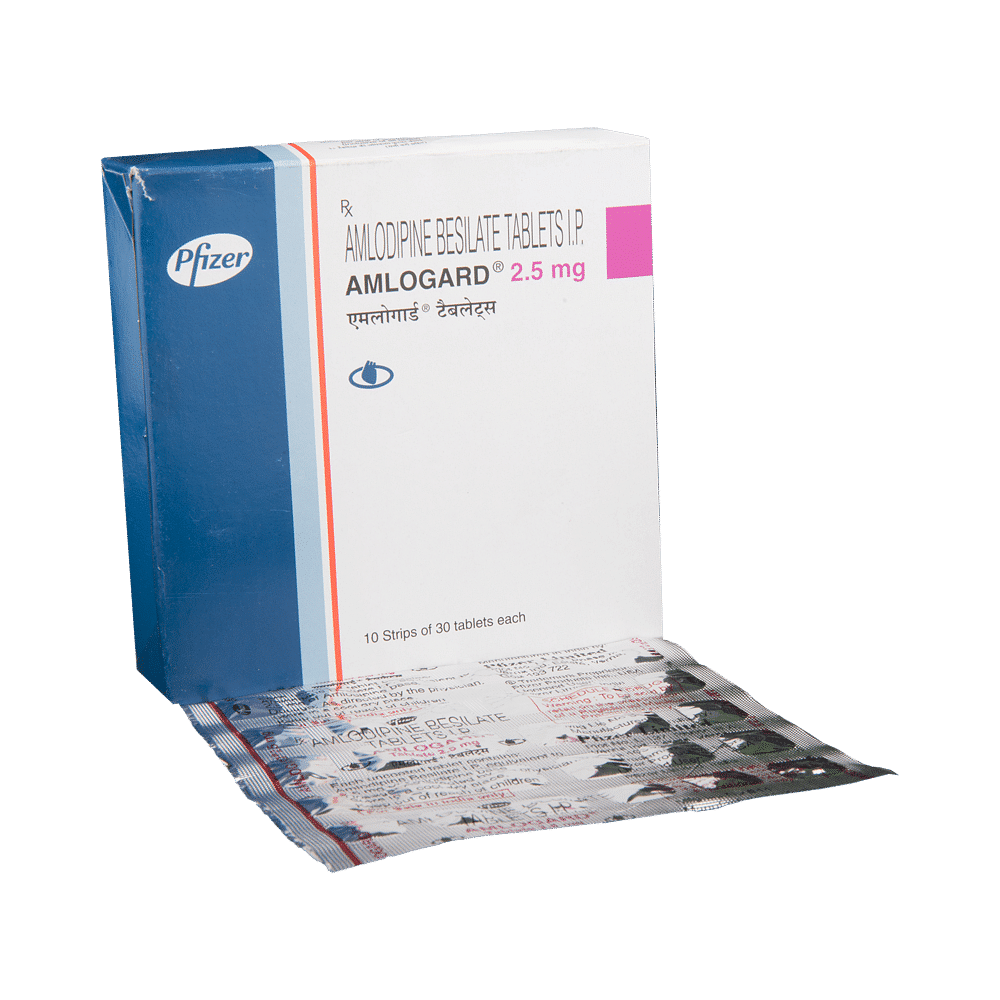
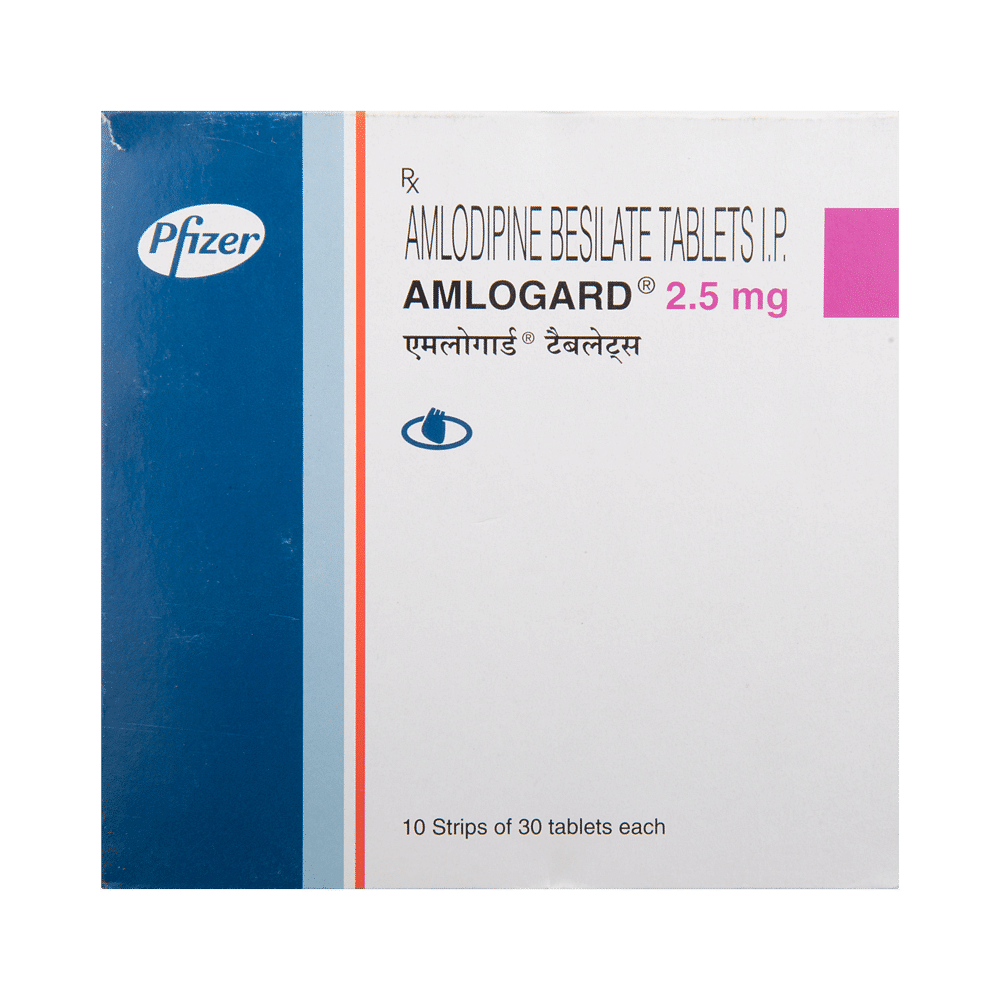
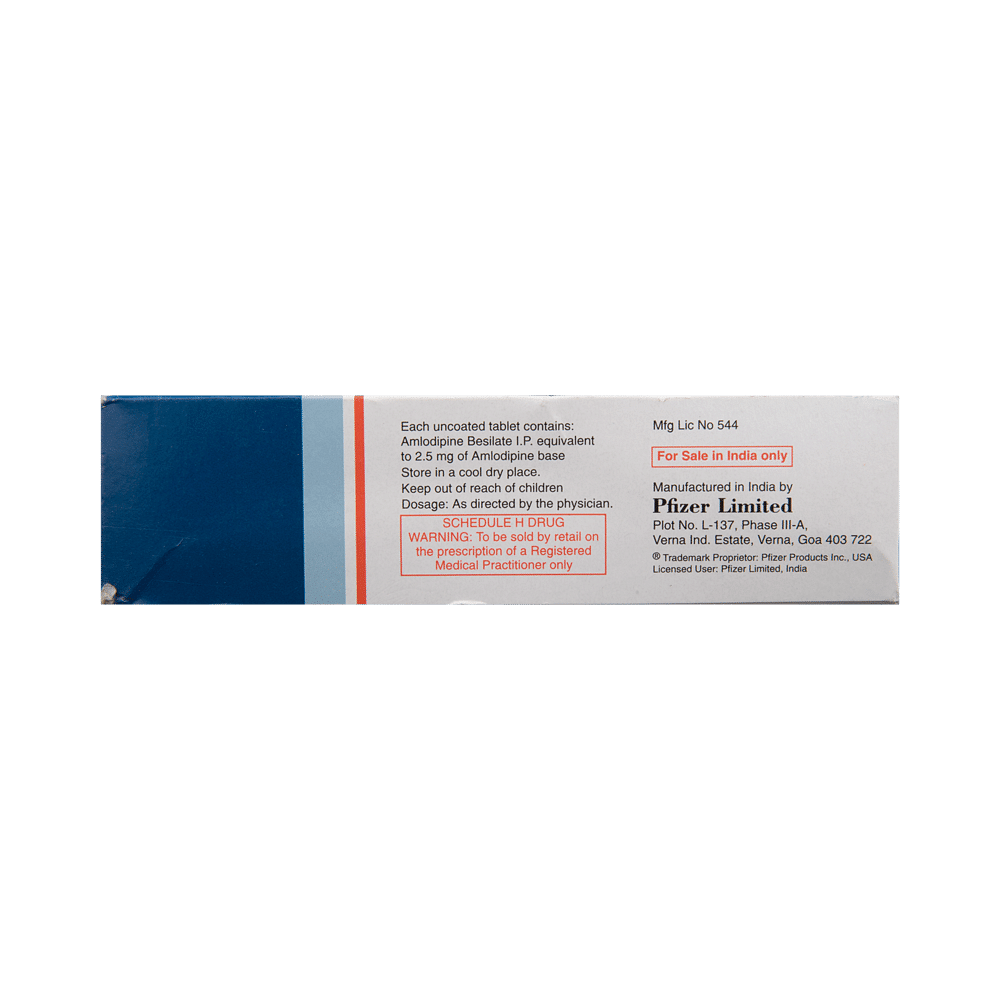
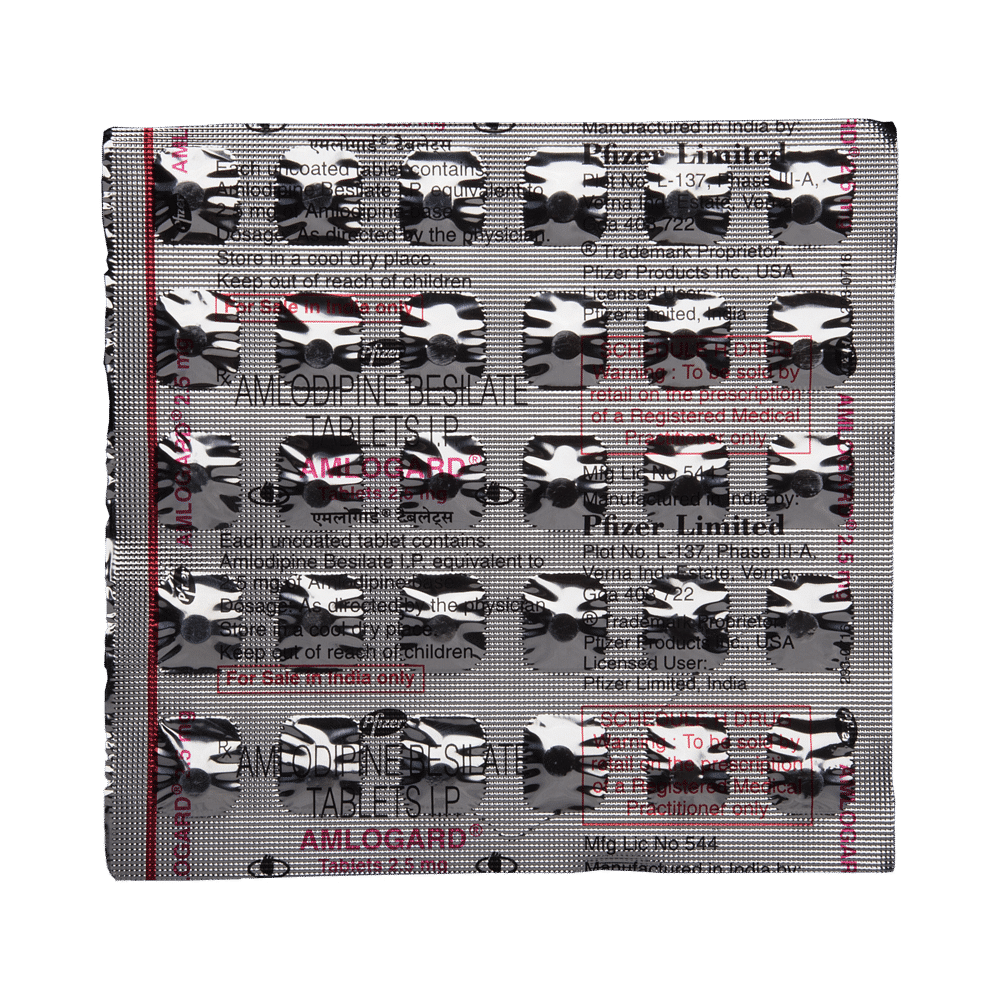
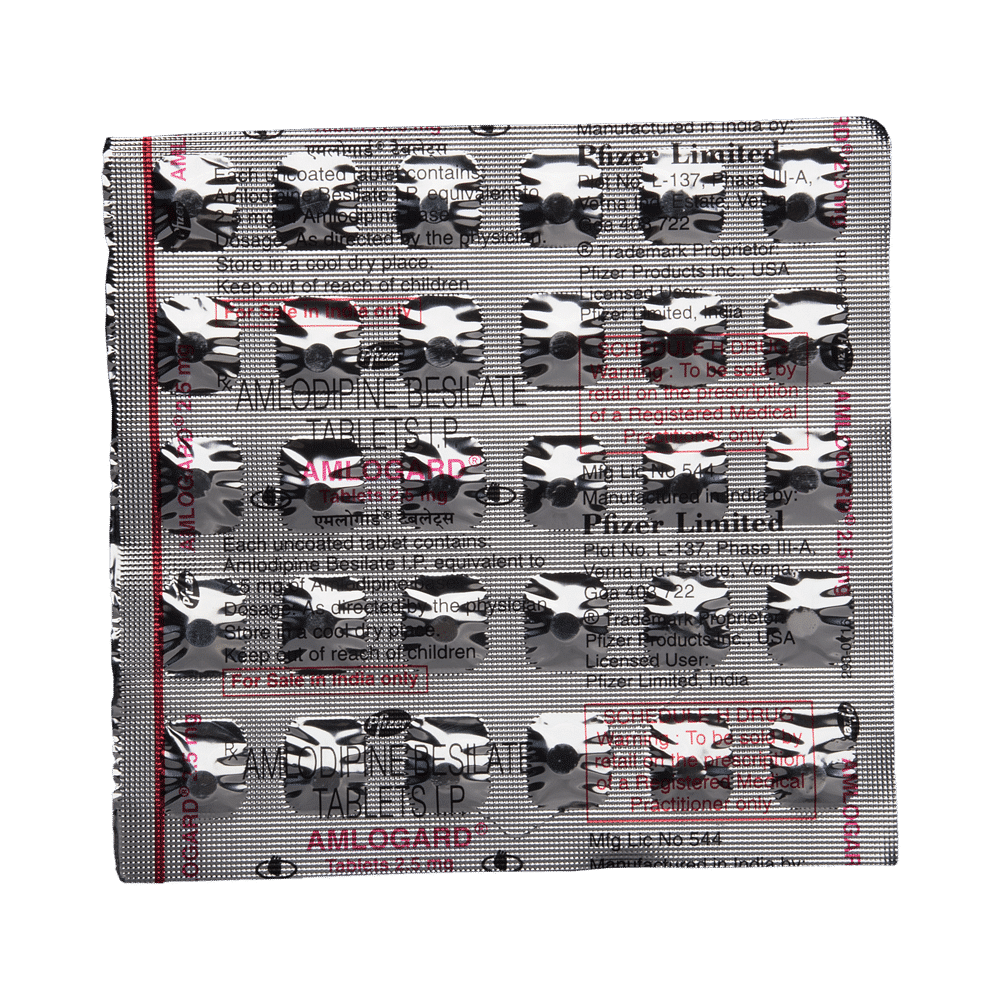
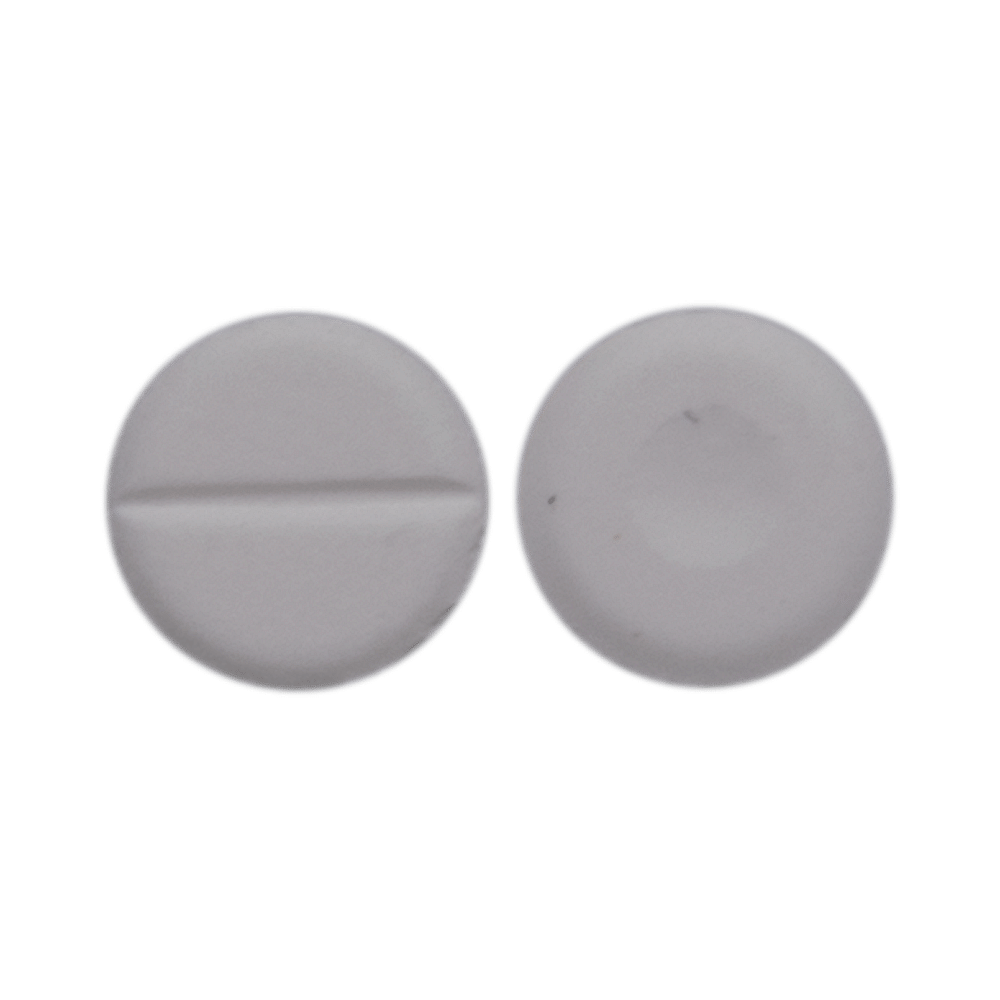
Amlogard 2.5mg Tablet
Manufacturer
Pfizer Ltd
Salt Composition
Amlodipine (2.5mg)
Key Information
Short Description
Amlogard 2.5mg Tablet is a calcium channel blocker used to treat high blood pressure and prevent angina (heart-related chest pain).
Dosage Form
Tablet
Introduction
Amlogard 2.5mg Tablet belongs to a class of medicines known as calcium channel blockers. It is used to treat high blood pressure (hypertension) and prevent angina (heart-related chest pain). It lowers blood pressure and reduces the heart's workload, which helps prevent heart attacks and strokes.
Directions for Use
Take this medicine in the dose and duration as advised by your doctor. Swallow it as a whole. Do not chew, crush or break it. Amlogard 2.5mg Tablet may be taken with or without food but it is better to take it at a fixed time.
Safety Information
Side Effects
No common side effects listed.
Alcohol Warning
Caution is advised when consuming alcohol with Amlogard 2.5mg Tablet. Please consult your doctor.
Breastfeeding Warning
Amlogard 2.5mg Tablet is probably safe to use during breastfeeding. Limited human data suggests that the drug does not represent any significant risk to the baby.
Pregnancy Warning
Amlogard 2.5mg Tablet may be unsafe to use during pregnancy. Although there are limited studies in humans, animal studies have shown harmful effects on the developing baby. Your doctor will weigh the benefits and any potential risks before prescribing it to you. Please consult your doctor.
Interacting Medicines
Amlodipine Aprepitant Atazanavir
How it works
Amlogard 2.5mg Tablet is a calcium channel blocker. In high blood pressure, it normalizes the blood pressure by relaxing the blood vessels to reduce the pressure on them, thereby improving the blood flow in the body. In heart-related chest pain (angina), the enhanced blood flow in the body relaxes the heart muscles by reducing the workload on the heart. It also improves the oxygen flow in the body, thereby preventing any heart-related chest pain.
Quick Tips
You have been prescribed Amlogard 2.5mg Tablet to improve your blood pressure and/or to reduce the number and severity of angina attacks. Lowering blood pressure reduces the chance of future heart attack and stroke. Take it at the same time every day to help you remember to take it. A sudden drop in your blood pressure may occur especially when you first start taking Amlogard 2.5mg Tablet. To lower the chance of feeling dizzy or passing out rise slowly if you have been sitting or lying down. It can cause ankle or foot swelling. To reduce the swelling raise your legs while you are sitting down. Talk to your doctor if it does not go away.
Related Medicines
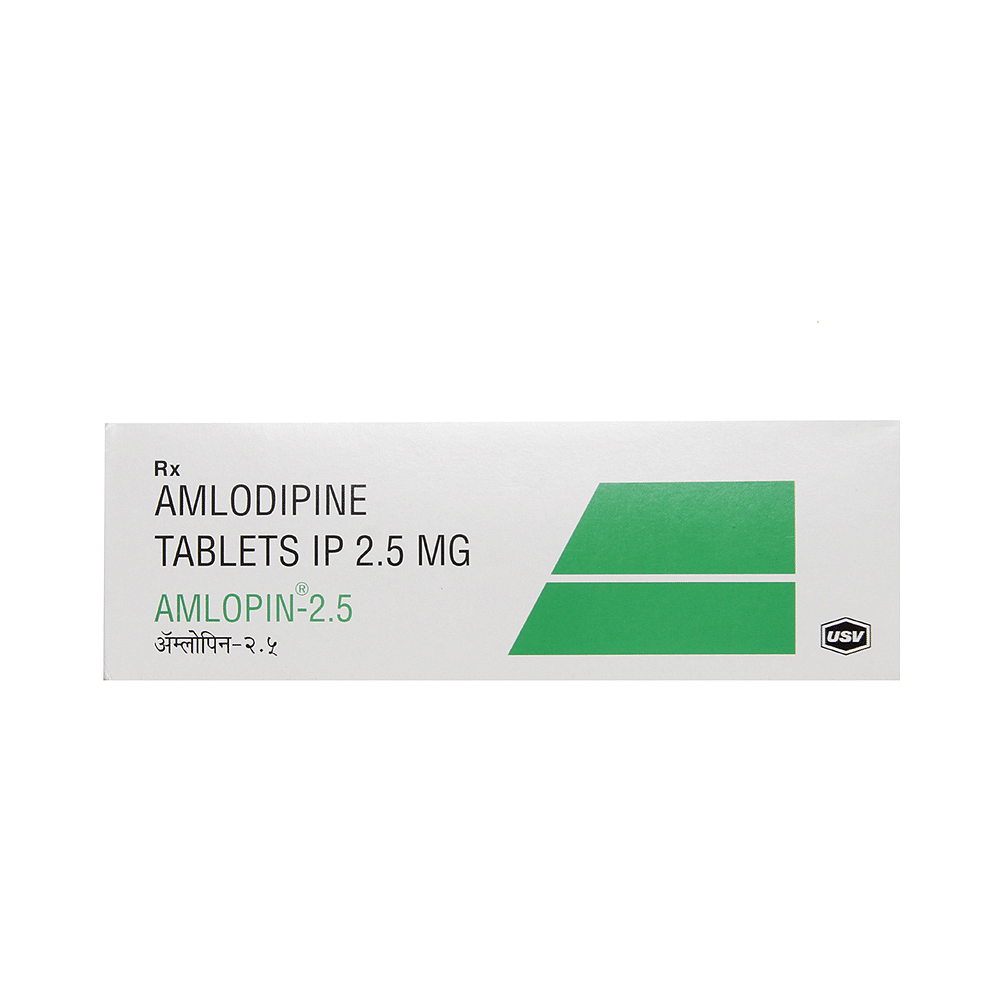
Amlopin-2.5 Tablet
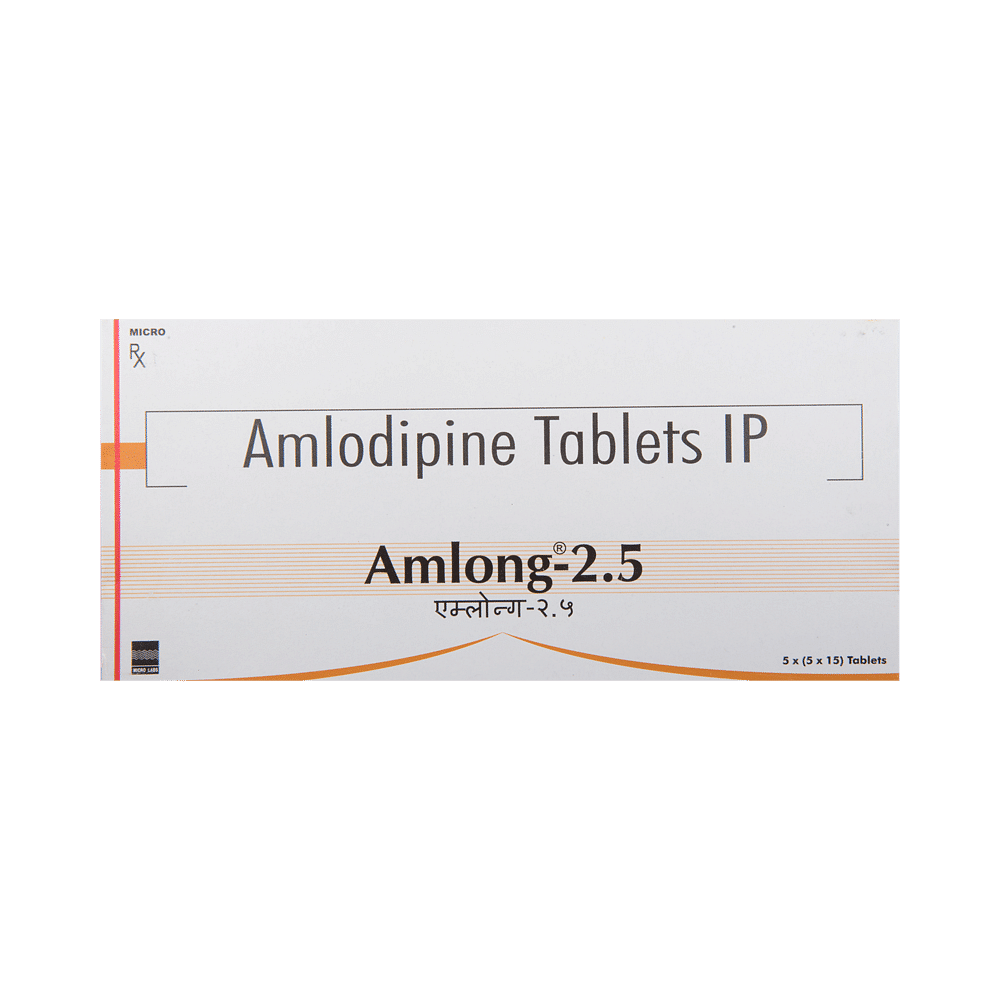
Amlong-2.5 Tablet
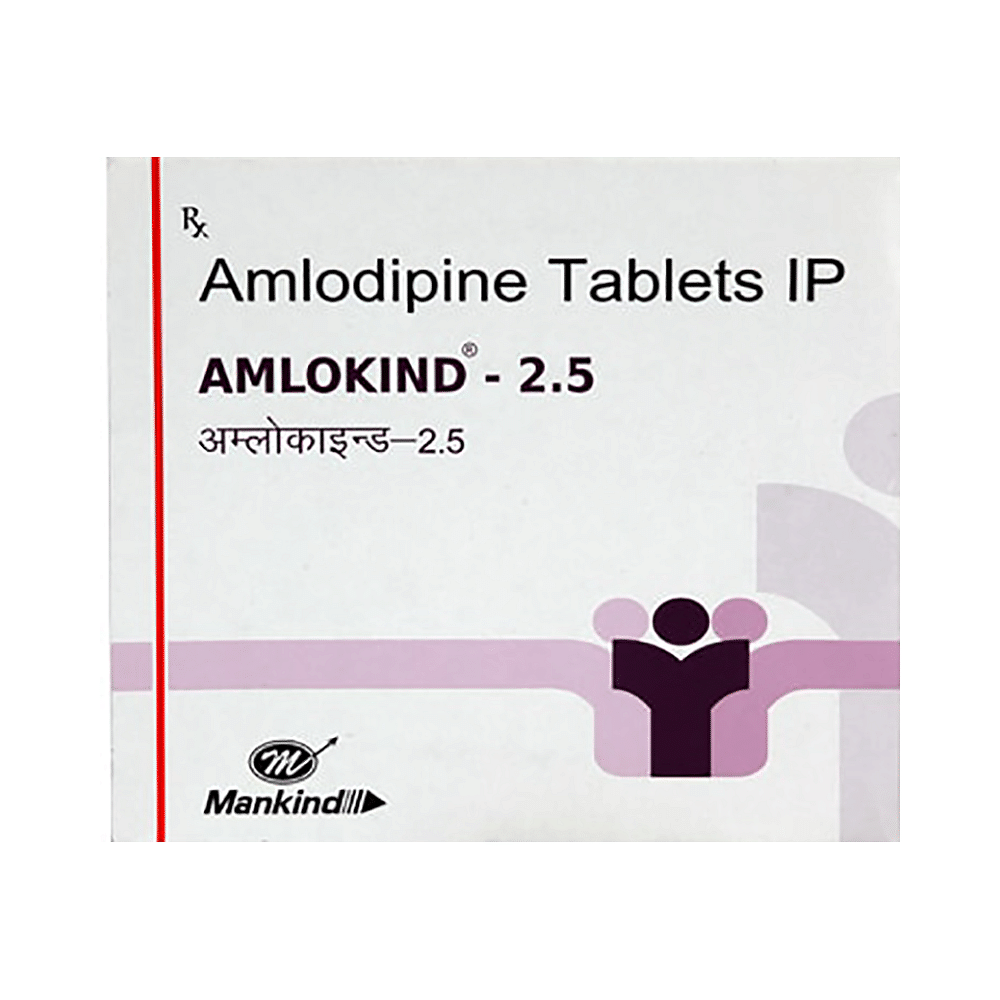
Amlokind 2.5 Tablet

Amlodac 2.5 Tablet
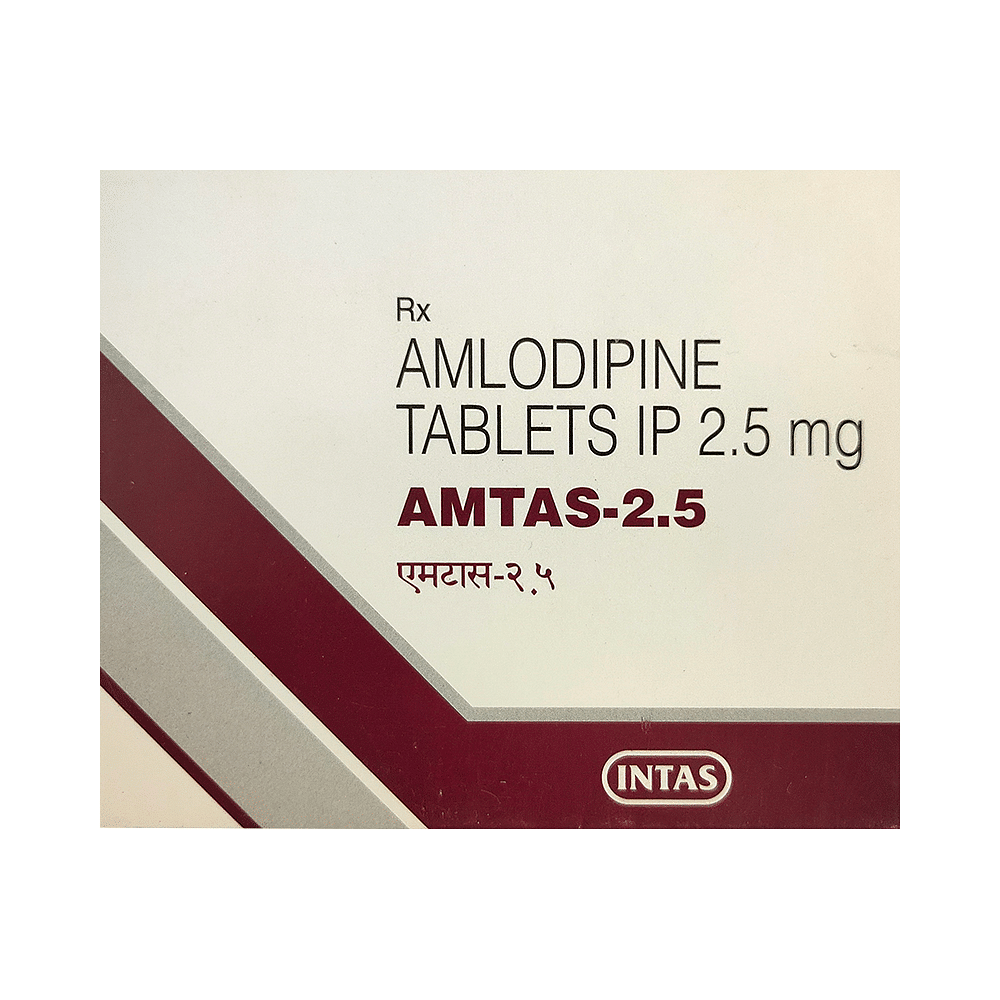
Amtas-2.5 Tablet
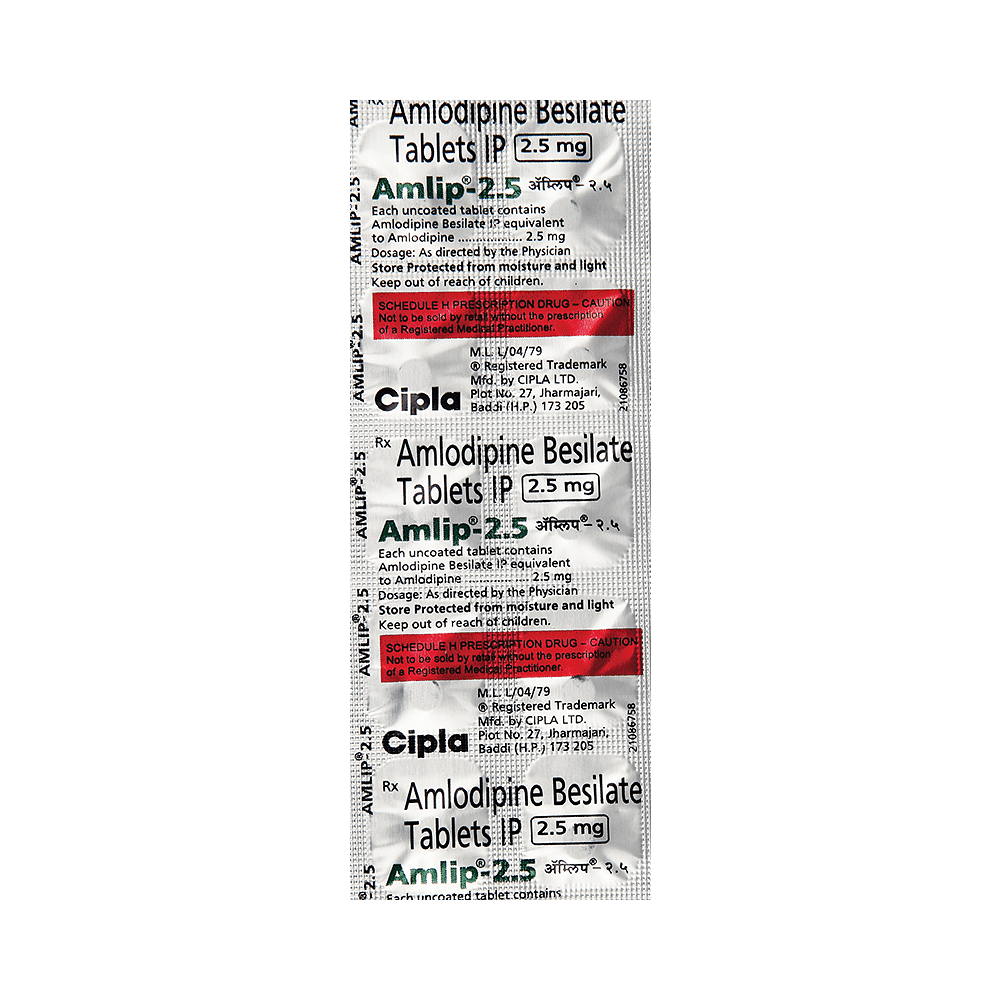
Amlip-2.5 Tablet
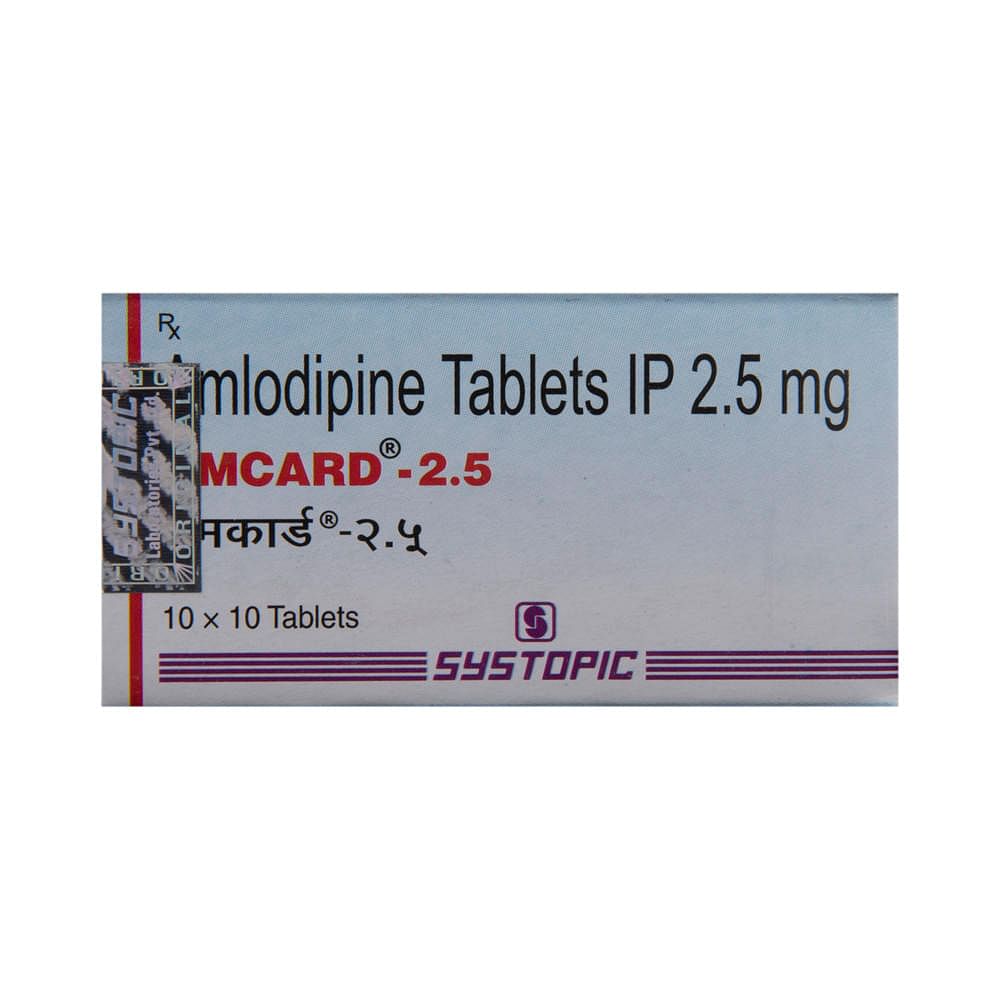
Amcard 2.5 Tablet
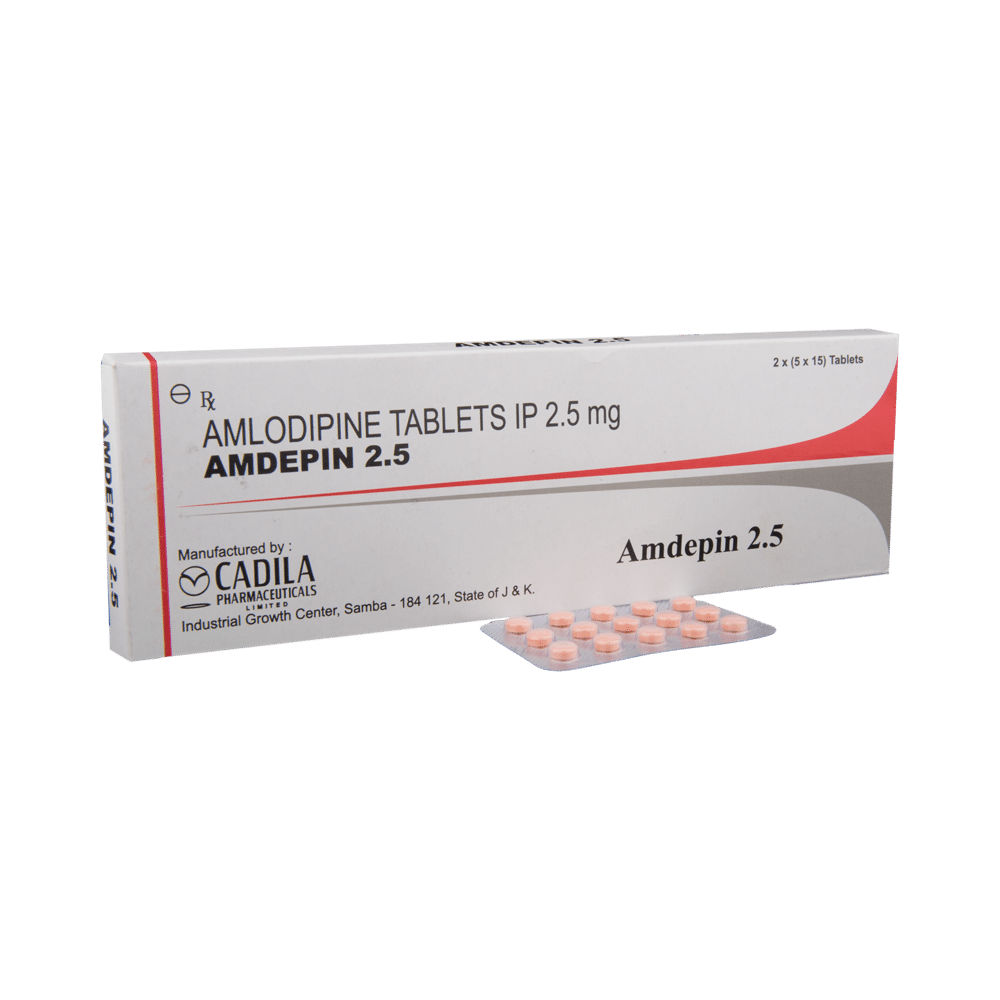
Amdepin 2.5 Tablet
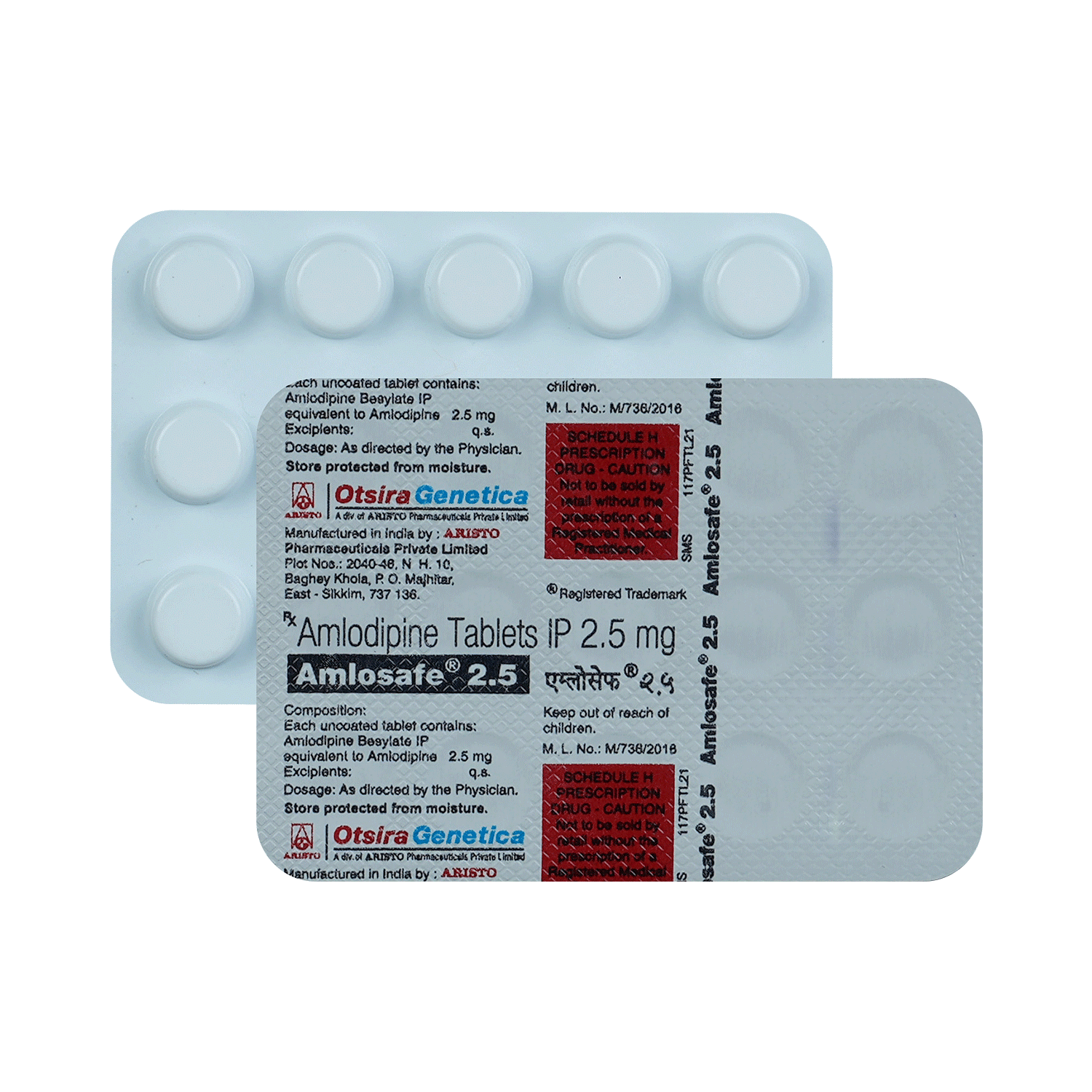
Amlosafe 2.5 Tablet
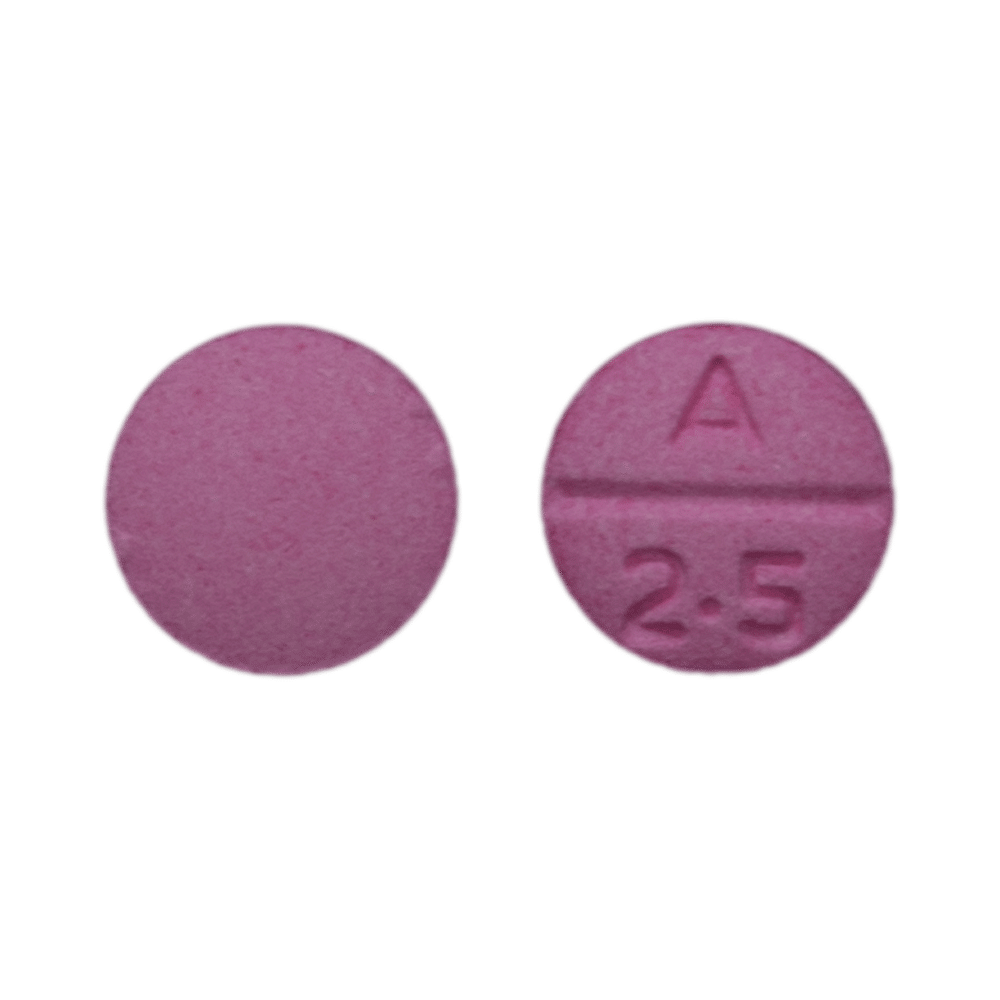
Amlovas 2.5 Tablet
Frequently asked questions
How long does it take for Amlogard 2.5mg Tablet to start working?
Amlogard 2.5mg Tablet begins to work on the day you take it, but you may need to continue taking it for several weeks to see its full effect.
Can Amlogard 2.5mg Tablet cause itching as a side effect?
Yes, itching is an uncommon side effect of Amlogard 2.5mg Tablet in some patients; however, severe itching requires medical attention.
Is Amlogard 2.5mg Tablet bad for people with kidney problems?
No, there is no evidence that Amlogard 2.5mg Tablet causes kidney deterioration or worsens existing kidney issues. In fact, its blood pressure-lowering effect can help prevent kidney damage due to hypertension.
When should I take Amlogard 2.5mg Tablet?
You can take Amlogard 2.5mg Tablet at any time of the day; however, it's usually recommended to take it in the morning, and your doctor may advise taking it in the evening as well.
How long should I continue taking Amlogard 2.5mg Tablet?
You should keep taking Amlogard 2.5mg Tablet for as long as your doctor recommends; you may need to take it lifelong. Do not stop taking it, even if you feel well or your blood pressure is under control.
Is Amlogard 2.5mg Tablet a beta-blocker?
No, Amlogard 2.5mg Tablet belongs to the class of medicines known as calcium channel blockers and not beta-blockers. It lowers blood pressure by relaxing the blood vessels.
What are the serious side effects of Amlogard 2.5mg Tablet?
Amlogard 2.5mg Tablet may cause rare but serious side effects such as liver problems (yellowing skin, nausea, vomiting, and loss of appetite), pancreatitis (severe stomach pain, nausea, and vomiting), and recurrent chest pain which may be indicative of a heart attack.
What should I avoid while taking Amlogard 2.5mg Tablet?
Before starting any new prescription or non-prescription medicines or supplements, consult your doctor first. Take low sodium and low-fat diet, adhere to lifestyle changes as advised by your doctor, and avoid eating grapefruit (chakotra) or drinking grapefruit juice while taking Amlogard 2.5mg Tablet.
I have developed ankle edema and swelling over my feet after using Amlogard 2.5mg Tablet. What should I do?
To reduce swelling, raise your legs while you are sitting down. Talk to your doctor if the swelling does not go away.


